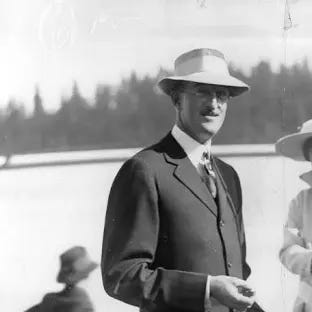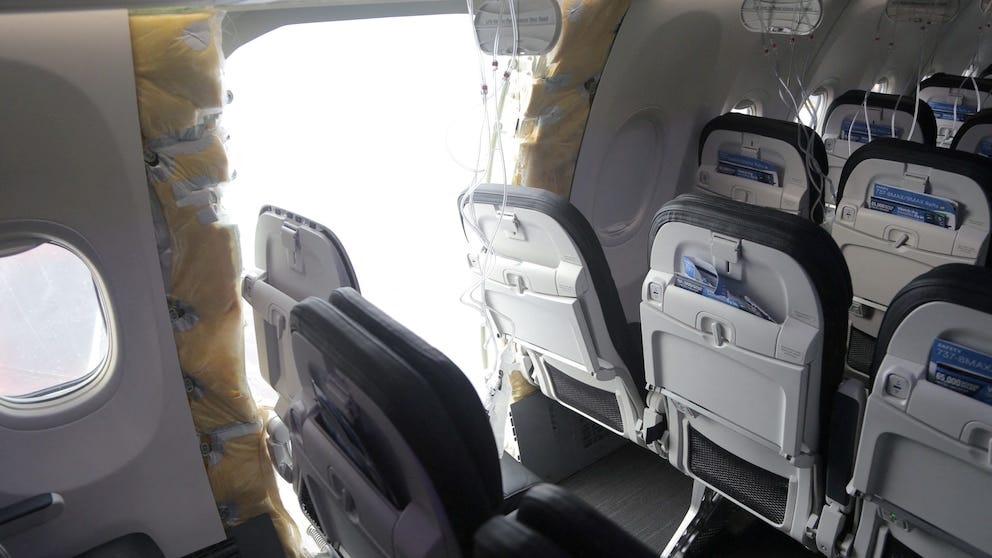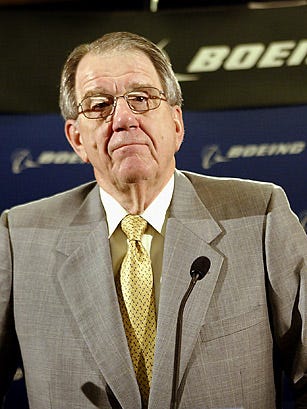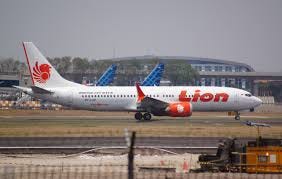Boeing's Tarnished Legacy: From Innovation to Scandal
A Vision
Once a symbol of innovation and craftsmanship, Boeing was founded in 1916 by William Edward Boeing, an American aviation pioneer. His vision was to revolutionize the aviation industry, making it safer and more efficient. Today, Boeing is the largest exporter in the United States, but its reputation has been marred by a series of catastrophic events that have called into question its commitment to safety and integrity.
The Alaskan Airlines Incident
On January 5th, 2024, an Alaskan Airlines flight experienced a terrifying ordeal when a doorplug was lost mid-flight from Portland to Ontario, California. Fortunately, there were only a few injuries, but the incident highlighted the potential dangers. Had someone been seated at the window without a seatbelt, the outcome could have been fatal. The fact that the aircraft was new signifies concerns about Boeing's quality control and manufacturing standards.
The Bizarre Response from Boeing's CEO
In an interview following the incident, Boeing CEO Dave Calhoun was asked a straightforward question: how could an unsafe airplane take flight? His response, "because quality escapes occurred," was nonsensical and did not address the root cause of the problem. This evasive answer only added to the public's growing mistrust of Boeing's leadership.
FAA's Ultimatum and Safety Violations
The Federal Aviation Administration (FAA) issued Boeing a 90-day ultimatum to address numerous safety issues. Many employees reportedly did not understand their roles in maintaining safety standards, violating several U.S. laws, including the Occupational Safety and Health Act (OSHA) and the Federal Aviation Regulations (FAR). The phrase "If it ain't Boeing, I ain't going" has now shifted to "if it's Boeing, I'll be forgoing"—a reflection of the company's fall from prominence.
The McDonnell Douglas Merger: A Turning Point
The merger between Boeing and McDonnell Douglas on August 1997, marked a critical turning point. McDonnell Douglas had a tarnished history, particularly with the DC-10, which was involved in accidents resulting in over 1,100 fatalities. This merger signaled the beginning of Boeing's departure from its founding principles.
Cost-Cutting Measures and Their Consequences
Under CEO Harry Stonecipher, Boeing aggressively cut costs, promoting a culture of "less family and more team." This shift undermined the company's internal cohesion and employee morale. In 2004, Boeing announced the 787 Dreamliner, but Stonecipher slashed the R&D budget, compromising the plane's quality and safety. The Dreamliner, delivered in 2007, was plagued with issues, including fires and defective batteries, leading the FAA to ground the fleet.
The 737 MAX Disasters
The 737 MAX was another example of Boeing prioritizing profit over safety. On October 29, 2018, a Lion Air flight crashed, killing all 189 passengers on board. The tragedy was linked to the MCAS (Maneuvering Characteristics Augmentation System), a software system that Boeing had failed to properly inform pilots about. Instead of comprehensive retraining, pilots received only a two-hour iPad course, which did not cover MCAS. This negligence had fatal consequences, as evidenced by another crash involving Ethiopian Airlines Flight 302 in March 2019, killing 157 people.
Damning Communications and Internal Corruption
Internal communications revealed a disturbing culture at Boeing. Employees mocked the FAA, ridiculed the company's processes, and openly criticized the 737 MAX's design. One message infamously stated, "This airplane is designed by clowns, who in turn are supervised by monkeys.”
The Tragic Fate of Whistleblowers
John Barnett, a former Boeing quality manager, was found dead under suspicious circumstances after raising concerns about safety issues in the 787 Dreamliner production line. Another whistleblower's death also raised questions, suggesting a pattern of silencing those who dared to speak out against the company.
Political Corruption and Influence
Boeing's ability to evade accountability can be attributed, in part, to its deep political connections. The company has spent millions on lobbying efforts and has a history of political contributions aimed at securing favorable treatment from regulators and lawmakers. This influence has allowed Boeing to navigate scandals with minimal repercussions.
Personal Opinion
Boeing, once admired for its aviation innovations, now faces a stark reality. By putting profit ahead of safety and grappling with political scandals and internal chaos, it has damaged its reputation. As investigations unfold, the big question remains: would Boeing face repercussions for its horrendous actions?
For more information, check the following:
New details emerge in case of Alaska Airlines plane where door plug blew out
Boeing whistleblower died by suicide, police investigation reveals
If this information was informative and educative, consider subscribing to the newsletter by pressing the subscribe button below:
Feel free to share this information with others by pressing the share button below:
Also engage in discussions by leaving comments below:
Your participation contributes to the collaborative and dynamic nature of the newsletter, creating a space for shared knowledge and diverse perspectives.











